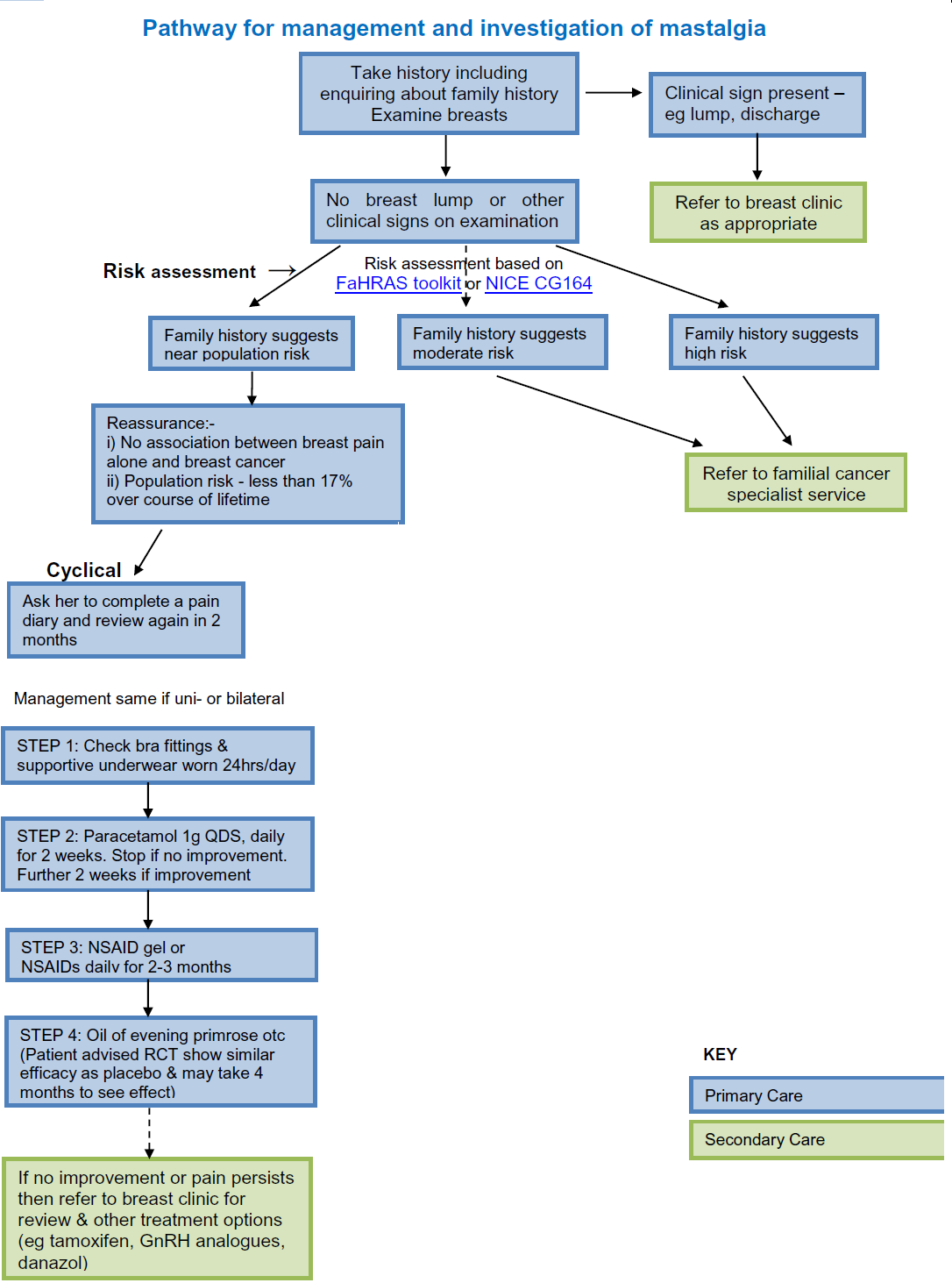treatment
Last edited 03/2020 and last reviewed 04/2021
Many patients that present, do so because they fear that their symptoms may be caused by cancer. Therefore 85% of patients with cyclical mastalgia require only explanation of the hormonal basis of their symptoms and reassurance.
Some women find that HRT or the oral contraceptive pill either cause or exacerbate mastalgia and symptoms may be alleviated with continuing therapy or changing the particular preparation used. It is also thought that reducing saturated fat intake leads to some improvement, and some women also find that wearing a soft support bra at night also helps.
A review concerning effectiveness of various treatments in management of mastalgia concluded that (1):
- topical NSAIDs are likely to be of benefit
- treatments where there is a trade off between benefits
and harms
- danazol
- gestrinone
- gonadorelin analogues (luteinising hormone releasing hormone analogues)
- tamoxifen
- treatments
of unknown effectiveness
- antibiotics
- dietary modifications (low fat, high carbohydrate)
- diuretics
- lisuride
- pyridoxine
- tibolone
- vitamin E
- the review concluded that bromocriptine, HRT (oestrogen), and progestogens were unlikely to be beneficial
- the review concluded that evening primrose oil was likely to be an ineffective or harmful intervention
A suggested management algorithm is (4):

Reference:
- Clinical Evidence (September 2006). Breast pain.
- Colak T et al. Efficacy of topical nonsteroidal anti-inflammatory drugs in mastalgia treatment. J Am Coll Surg 2003;196:525-530.
- The Practitioner (1999), 243, 484-93.
- University Plymouth Hospitals NHS Trust - Devon Breast Pain. Pathway for management and investigation of mastalgia (Accessed 5/3/2020)